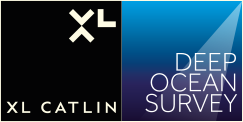XL Catlin Announces Sponsorship of Deep Ocean Survey

XL Catlin announced on July 5, the launch of a new scientific survey to research Earth’s least explored and critically important ecosystem – the deep ocean.
The XL Catlin Deep Ocean Survey is a multidisciplinary scientific research program that will create a new standardized methodology to be used by marine biologists for measuring physical, chemical and biological indicators for the purpose of assessing the function, health and resilience of the deep ocean.
The survey is being delivered by Nekton in partnership with XL Catlin and a pioneering alliance of the world’s leading ocean scientists, media organizations, business leaders, philanthropists, educationalists and civil leaders.
This is the third ocean-focused program supported by XL Catlin and confirms the company’s commitment to promoting scientific understanding of climate-related change in the marine environment. It follows the Catlin Arctic Survey and the XL Catlin Sea view Survey that continues to explore and document the world’s coral reefs.
Paul Jardine, Chief Experience Officer at XL Catlin, said: “This partnership is confirmation of our commitment to actively learn more about the risks we could face in future. We believe that collecting and sharing reliable and impartial data can play an important part in this.”
“As an re/insurance company there is an immediate need to accelerate our knowledge of how the oceans are changing. We need to understand the risks that businesses, society and ecosystems will face in future.”
The Mission is using manned submersibles and remotely operated vehicles (ROVs) to explore the least known part of our planet. Similar to XL Catlin’s previous ocean research programs, there is a real commitment from the parties involved to make the data freely available for scientists to use.
Mike Marin, Chief Science Officer at XL Catlin, said: “The oceans play a vital role in regulating our climate and controlling weather patterns. They underpin the health of our planet and yet we have little scientific data about the ocean as a driver of change.
To manage risk effectively we must fully understand it, and at XL Catlin we’re committed to actively learning more about the risks that affect our future. This Survey helps us all expand our knowledge of the importance the oceans play on our daily lives.”
Alex Rogers, Nekton’s Principal Scientist and Professor of Conservation Biology at the Department of Zoology, University of Oxford, said: “By working together we will develop a better understanding of ocean health, but to achieve that we need a common scientific approach. The XL Catlin Deep Ocean Survey will create the first standardized methodology for marine biologists across the world to build on.”
Oliver Steeds, Nekton’s Mission Director, said: “We are excited to be heading to the last, great frontier on Earth. The technology available today now makes it possible for us to discover so much more. We’re hoping to help accelerate our understanding of how the ocean is changing and its implications for humanity.”
As with XL Catlin’s previous surveys, the expeditions will be engaging audiences around the world with its stories of human endeavor.
A new set of curriculum resources based on Submarine STEM will be added to XL Catlin’s Oceans Education program. Chip Cunliffe, Director of Environmental Science Programs and Education at XL Catlin, said: “The legacy of our ocean science research is for children to understand how important the oceans are to us. Using exploration and real science in action, we hope to be able to create a more ocean-literate generation and engage even more people around the world than the 3.5m we have done so far.”
The XL Catlin Global Reef Record now hosts all the visual and analyzed data which has recently been enhanced using big data processing techniques.
The Catlin Arctic Survey (2009-2011) examined how climate change and other factors were affecting the fragile Arctic environment. The Survey was a unique collaboration between scientists and explorers. Amongst the phenomena it investigated were the thinning of the floating sea ice and the time scale for a projected ice-free summer season in the Arctic. These create risks and opportunities with global implications including changing weather patterns, faster melting of the Greenland ice sheet, alterations to fish migration and the opening of Artic shipping routes.

